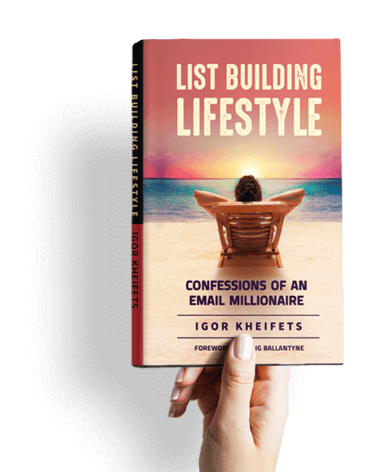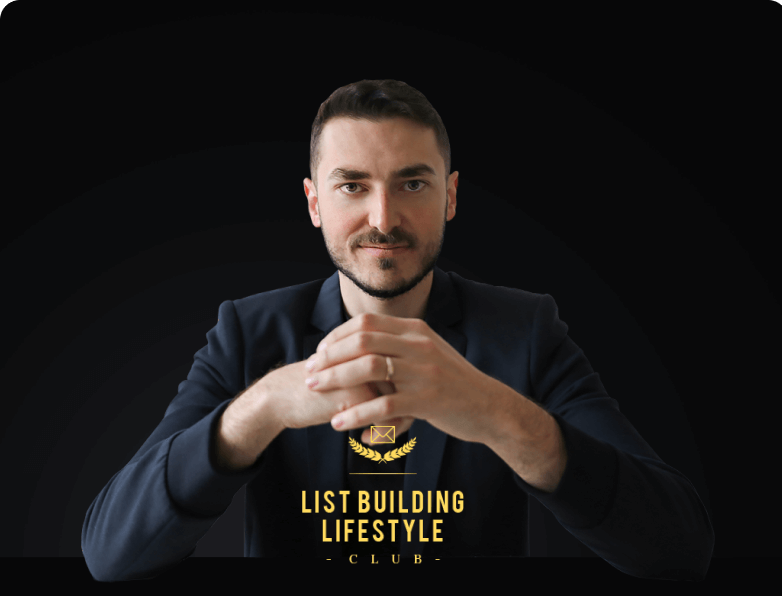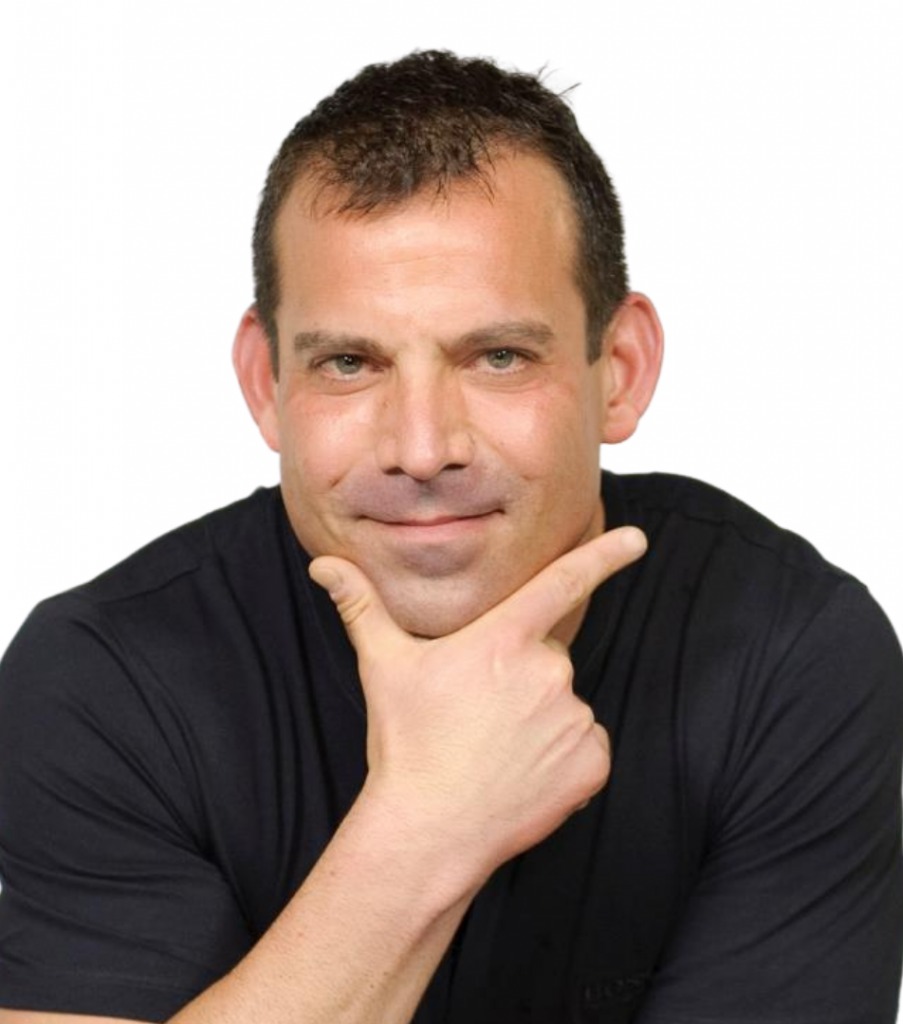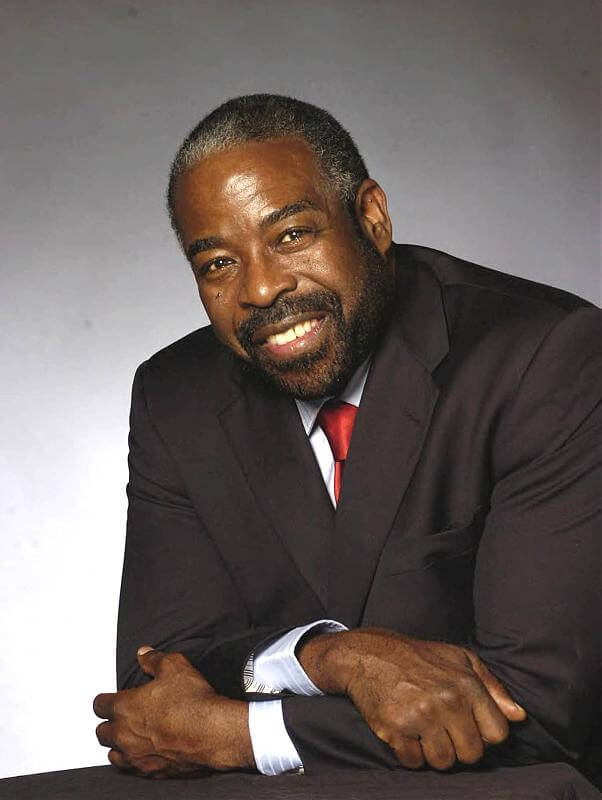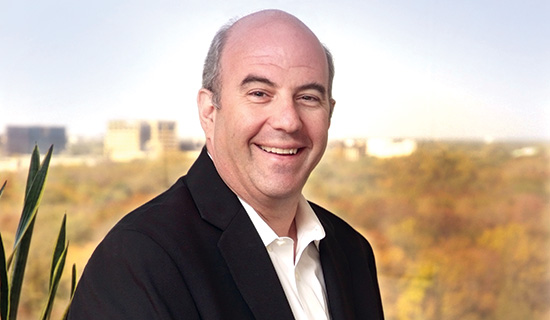Before Dave Dee was one of the top names at GKIC, he was a struggling entertainer trying to figure out how to get more gigs. Then he discovered Dan Kennedy… and everything changed. In this episode, we dive into Dave’s wild journey from mentalist to CMO, his $330K breakout session that shocked the room, and the real reason most webinars fail before they even start. If you sell anything using presentations, this one’s packed with hard-earned insights and zero fluff. You’ll walk away seeing the art of selling through a whole new lens.
GUEST:
Dave Dee has one of those rare backgrounds that makes you lean in. Before stepping into the world of marketing, he was a professional mentalist, earning his living by reading minds and working live audiences. That experience taught him more about persuasion and attention than any marketing book ever could.
When he applied those skills to sales, things took off fast. After discovering Dan Kennedy’s Magnetic Marketing, Dave went from struggling entertainer to the top-selling personality at GKIC, and eventually became the company’s Chief Marketing Officer.
Over the years, he’s helped thousands of entrepreneurs sell their products and services through presentations, webinars, and stage talks, without sounding pushy or relying on gimmicks. His style is clear, persuasive, and deeply rooted in psychology.
Today, Dave helps service providers and experts craft presentations that don’t just inform, but actually convert. If you’ve ever wanted to sell better from the stage, or from anywhere, Dave brings the kind of insight that only comes from doing it in the real world.
[0:52] Introduction to Dave Dee:
- Former professional mentalist, known for reading minds and “planting thoughts” in people’s heads.
- Transitioned from performing on stage to selling info products with the same persuasive skills.
- Became one of the top-selling personalities at GKIC, the Dan Kennedy-led marketing organization.
- Later took on a leadership role at GKIC, helping steer the company during its transition after being sold.
- Deeply rooted in the Dan Kennedy direct response universe, with first-hand experience of its evolution over the years.
[03:05] Marketing Is Marketing:
- Marketing fundamentals apply universally across industries; success comes from execution, not niche uniqueness.
- Extraordinary outcomes in one field can serve as powerful social proof for a methodology’s effectiveness in others.
- NLP and psychological influence techniques enhance persuasive communication, especially in live sales environments.
[04:54] Systems Trump Talent:
- Mastery in selling requires deliberate, long-term investment in education, practice, and system development.
- Results in live marketing are determined by strategy and execution, not charisma or confidence alone.
- Even a small audience in a low-profile setting can generate massive returns when the message, offer, and mechanics are aligned.
- Financial success in marketing events follows the ability to convert attention into action through proven persuasive techniques.
[08:01] Hard numbers speak louder than resumes:
- High-impact performance in a niche ecosystem draws attention from acquirers and decision-makers during transitional phases.
- Market validation through measurable outcomes gives individuals leverage in negotiations, including location, compensation, and autonomy.
- Third-party validation from respected industry figures can serve as a powerful referral, opening executive opportunities without formal pursuit.
- Long-term fit in an organization requires philosophical alignment, technical success cannot sustain engagement when values diverge.
- Exit decisions are justified when personal integrity and professional environment become incompatible.
- Leadership roles are not defined by hierarchy alone, authentic impact comes from alignment between individual strengths and company mission.
[10:33] Leverage the Perks, Then Leave on Your Terms:
- Not all corporate practices are optimized for results; what exists in large organizations isn’t always what works best.
- Immersion in a new environment, however unfamiliar, can still yield transformative outcomes when it expands network, expertise, and visibility.
- Proximity to mastery accelerates learning, working alongside pioneers deepens understanding beyond what courses or books can teach.
- Value is created not just through fit, but through friction, clashing systems can clarify one’s true strengths and preferred way of operating.
[12:54] The “Self-Solving Objection” Technique:
- Objections are better resolved through storytelling than direct rebuttal. Narratives bypass resistance and plant persuasive ideas subconsciously.
- Cold reading and psychological techniques build rapport and trust by creating the perception of deep understanding, even in group settings.
- Embedding solutions to objections within personal stories allows the audience to self-convince, increasing buy-in and reducing pushback.
- Subliminal persuasion through gesture, language, and timing shapes decisions without triggering skepticism or defensive thinking.
- The most effective sales presentations don’t confront objections head-on; they pre-solve them before the audience fully forms the thought.
- Timing matters: planting a psychological seed early in a presentation ensures it surfaces at the moment of decision.
- Authority figures and mentors (like Jim Rohn) serve as social proof, lending credibility to decisions when referenced authentically.
[19:41] The 2 Pillars of High-Converting Presentations:
- Passion and delivery outweigh perfect structure, authentic energy converts more than mechanical precision in presentations.
- Belief in the offer is contagious; when the presenter truly embodies the message, the audience follows without resistance.
- Subconscious engagement comes from how something is said, not just what is said, tone, timing, and presence shape decisions.
- Over-reliance on formulas and slide sequences distracts from the core driver of persuasion: human connection and emotional resonance.
- A technically flawless presentation fails without conviction, while a raw, passionate delivery can outperform even the most polished script.
- Audiences respond to urgency and authenticity: when a message is delivered as a necessity, not a pitch, buying becomes inevitable.
- Stage craft: engagement, pacing, eye contact, gesture is a force multiplier that elevates even simple content into transformative experiences.
[26:16] The “Over-Delivery” Trap in Sales Presentations:
- Overloading a presentation with content creates the illusion of value while destroying the urgency to buy. Excessive teaching shifts the audience from buyer mindset to learner mindset.
- The human mind retains only a few key ideas, exceeding three core concepts leads to confusion, not clarity.
- “Moving the free line” by giving away too much teaches the audience how to self-solve, eliminating the need for the paid offer.
- AI amplifies the risk of over-teaching: when core principles are revealed, audiences believe they can replicate results alone.
- A powerful presentation doesn’t answer every question, it creates emotional resonance and leaves a gap only the offer can fill. Mastery in sales communication lies in restraint, knowing what to leave out is as critical as knowing what to include.
[28:48] Implementation Checklist:
- Future pacing with contrast (light vs. dark outcomes) creates emotional urgency and motivates action.
- Useful but incomplete information satisfies curiosity while stimulating desire for the full solution.
- The entire presentation is a continuous close; structure, storytelling, and pacing all build toward the call to action.
- Teaching in categories with layered depth allows comprehensive coverage without cognitive overload.
- A well-structured offer ties gaps in knowledge directly to bonuses or next steps, making the purchase feel inevitable.
[33:35] Reframing the Sales Mindset:
- Strategic withholding is not manipulation, it’s alignment between audience need and offer fulfillment.
- Value is proven through relevance and insight, not volume, audiences trust those who guide, not overwhelm, them.
- Selling is not exploitation, it is service, when the offer genuinely solves a problem or fulfills a desire.
- Fear of audience backlash leads to overcompensation with content, which dilutes the sales purpose and reduces conversions.
- The moral obligation of the seller is to close ethically when the product or service delivers real results.
- True generosity lies in directing people to the solution they need, not in giving away everything for free.
- Balancing value and selling means giving enough to prove insight, but not so much that action becomes unnecessary.
[36:14] The Myth of the “Perfect Pitch”:
- Belief in the product fuels persistence: follow-up exists because true value deserves a second chance to be seen.
- A single presentation is rarely enough, most decisions happen after the initial exposure, making follow-up essential.
- Not buying doesn’t mean not wanting, timing, trust, or clarity may be missing, not desire.
- Deadlines drive action, but only when they are authentic, artificial scarcity erodes trust, real scarcity creates urgency.
- Follow-up sequences are not pushy, they are acts of service, ensuring those who need help don’t miss it.
[40:09] How to Create Your Own Power Anchor:
- Anchoring is a psychological tool that links a physical or verbal trigger to a powerful emotional state through repetition.
- Confidence and power can be summoned on demand when tied to a unique, consistent ritual.
- The trigger must be distinctive and rarely used, so the brain preserves its emotional charge.
- Great presenters don’t rely on motivation; they use systems to access focus, passion, and certainty on command.
- The audience feels energy before words are spoken, presence is communicated through non-verbal cues and emotional frequency.
- Authenticity matters, amplify your true self, don’t imitate others; the goal is a heightened version of you, not someone else.
- Rituals are private and personal, what works for one may not work for another, but the principle remains universal.
[46:28] The Maturity Curve of Mastery:
- Expertise is defined not only by strength, but by clarity on where one adds value and where one does not.
- Traffic generation and lead conversion are distinct disciplines, mastery in one does not imply competence in the other.
- Honesty about limitations strengthens credibility; admitting weakness filters for ideal clients and partnerships.
- Trying to be everything dilutes effectiveness, spreading focus across multiple domains prevents true excellence.
- Specialization builds authority: owning a narrow, high-impact skill makes a person the obvious choice in their niche.
- Speaking-based marketing requires unique conversion strategies distinct from generic sales tactics.
[49:28] The “Strategic Incompetence” Framework:
- Time is more valuable than money: spending hours on low-skill tasks sacrifices higher-leverage opportunities.
- Excellence comes from focus: deep competence in a single area compounds far more than scattered proficiency.
- Delegation is not weakness, it’s recognition that different skills belong to different people. Mastery in one domain makes outsourcing to other areas not a cost, but a strategic investment.
- Pride in self-reliance can be a trap, true efficiency lies in knowing when not to do something yourself.
- The highest performers don’t fix their weaknesses, they build systems that make those weaknesses unnecessary.
[51:31] Different Choices, Different Tradeoffs:
- Lifestyle design begins with clarity: decide the life you want, then build the business that enables it.
- True wealth includes time, autonomy, and joy, metrics beyond revenue or headcount.
- Trade-offs are inevitable; every choice to grow or stay small comes with costs and rewards.
- Comparison is misleading: public results often hide private realities, especially in industries where image is amplified. Fulfillment comes from owning your decisions, not from matching someone else’s path or outcomes.
- A business should serve the owner, not enslave them; the best model is one that allows absence without collapse.
- Passion and purpose matter: success includes space to pursue what brings joy, not just what generates income.
- Long-term satisfaction requires rejecting societal definitions of success in favor of self-defined metrics.
[58:30] Marketing incest makes everyone dumber:
- AI is a tool, not a strategist: effective use requires human oversight, editing, and brand-aligned refinement.
- Generic AI-generated content lacks personality, passion, and differentiation, traits essential for trust and connection.
- Authenticity sells: clients buy from people, not faceless systems or templated messages. Over-reliance on automation erodes brand voice and creates indistinguishable messaging across industries.
- Stories, delivery, and presence cannot be faked or generated, they are the ultimate differentiators in a commoditized market.
[1:02:37] Dave Dee’s Expertise:
- If you’re selling a product or service, Dave Dee is a go-to expert in marketing and persuasion. His daily Dee Mail is packed with sharp, actionable insights. He also offers coaching and consulting, and he’s one of the OGs in the game: Reach out for coaching via the site: davedee.com
[1:03:22] Master Marketers Outperform Master Craftspeople:
- Visibility and persuasion drive success more than skill alone.
- Success follows those who prioritize selling over simply doing, results come from getting noticed, not just being good. Marketing is not secondary to the service, it is the engine that determines who gets to experience it.
- A fair world would reward pure talent, but real-world outcomes favor those who understand demand creation.
- Attention is the bottleneck: no amount of expertise matters if the right audience doesn’t know it exists.
[1:05:26] Igor’s Book On Email Marketing:
Visit www.igorsbook.com to learn more.




